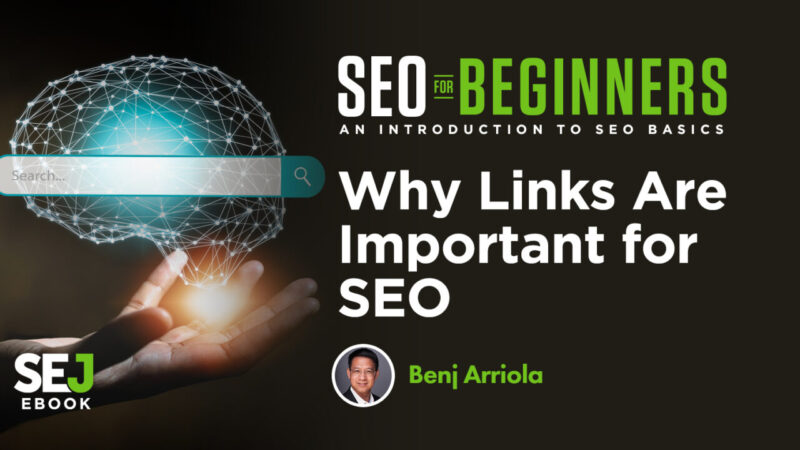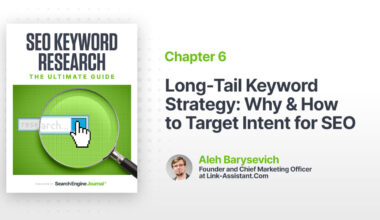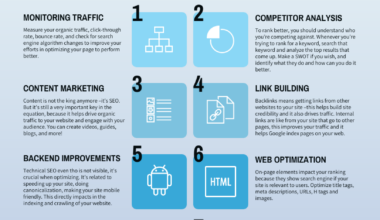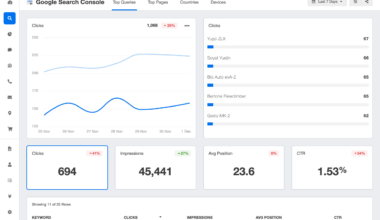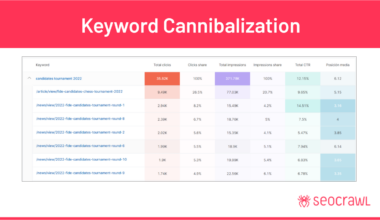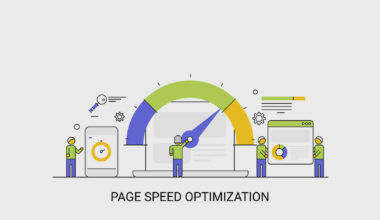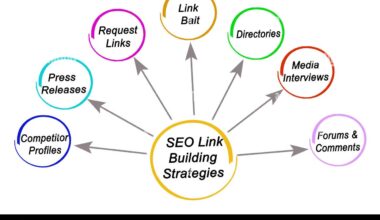Introduction: Understanding the Importance of Inbound and Outbound Links in SEO
For any website to rank highly in search engine results, it is important to have a strong SEO strategy. One crucial aspect of SEO is link building, which involves acquiring links from other websites to your website, as well as linking out to other relevant websites. This can be achieved through inbound and outbound links.
Inbound links, also known as backlinks, are links from other websites that point to your website. These links signal to search engines that other websites trust your content and find it valuable, which can improve your website’s search engine ranking. The quality and relevance of the inbound links are crucial as search engines consider these factors when evaluating the credibility and authority of your website.
On the other hand, outbound links are links that point from your website to other relevant websites. Outbound links can improve your website’s credibility and authority as they signal to search engines that your website is a valuable resource that provides relevant content to your audience.
While both inbound and outbound links are essential for a strong SEO strategy, it is important to note that not all links are created equal. Search engines consider the quality and relevance of the links when evaluating a website’s credibility and authority.
In the next sections, we will discuss the impact of inbound and outbound links on SEO rankings, best practices for link building strategies, and metrics for evaluating link quality. By understanding the importance of inbound and outbound links, you can improve your website’s SEO ranking and drive more traffic to your website.
Inbound Links: How They Impact SEO Rankings
Inbound links are crucial for improving a website’s search engine ranking, as they signal to search engines that other websites find your content valuable and trustworthy. The more relevant and high-quality inbound links a website has, the higher its search engine ranking is likely to be.
There are several ways in which inbound links impact SEO rankings:
1. Authority and Credibility: Inbound links from authoritative and credible websites can improve a website’s own authority and credibility in the eyes of search engines. This is because search engines consider the quality and relevance of the linking website when evaluating a website’s credibility and authority.
2. PageRank: Inbound links can also impact a website’s PageRank, which is a numerical value assigned by Google to determine a website’s relevancy and importance. PageRank is determined by the quantity and quality of inbound links a website has, with high-quality links from authoritative websites having a greater impact on PageRank.
3. Traffic: Inbound links can drive traffic to a website by providing users with a direct link to the website. This can improve the website’s click-through rate and ultimately its search engine ranking.
To improve a website’s inbound links and SEO ranking, it is important to focus on quality over quantity. High-quality inbound links from authoritative and relevant websites are more valuable than a large quantity of low-quality links. Some strategies for acquiring high-quality inbound links include:
1. Creating high-quality content that is shareable and linkable.
2. Guest blogging on relevant websites and linking back to your own website.
3. Participating in online communities and forums related to your niche and including a link to your website in your profile or signature.
In conclusion, inbound links are a crucial aspect of SEO and can have a significant impact on a website’s search engine ranking. By focusing on quality over quantity and implementing effective link building strategies, websites can improve their inbound links and ultimately their SEO ranking.
Outbound Links: Their Role in Building SEO Credibility
Outbound links, also known as external links, are links that point from your website to other relevant websites. While inbound links are crucial for improving a website’s search engine ranking, outbound links also play an important role in building SEO credibility.
Here are some benefits of outbound links for SEO:
1. Relevance and Authority: Outbound links that are relevant to your content and point to authoritative websites can improve your website’s credibility and authority in the eyes of search engines. This is because search engines consider the quality and relevance of the external website when evaluating a website’s credibility and authority.
2. User Experience: Outbound links can enhance the user experience by providing additional resources and information to your audience. This can improve engagement and reduce bounce rates, which can ultimately improve your website’s search engine ranking.
3. Networking: Outbound links can also help you build relationships with other websites and bloggers in your niche. This can lead to opportunities for guest blogging, collaborations, and cross-promotion, which can ultimately improve your website’s SEO ranking.
To effectively use outbound links for SEO, it is important to follow some best practices:
1. Quality over Quantity: Similar to inbound links, it is important to focus on quality over quantity when linking out to other websites. Only link to relevant and authoritative websites that add value to your content.
2. Anchor Text: Use descriptive anchor text when linking out to other websites. This helps search engines understand the context and relevance of the external link.
3. No-Follow Links: Consider using no-follow links for external links that are not directly related to your content or are paid links. This helps prevent potential penalties from search engines for unnatural link building.
In conclusion, outbound links play a crucial role in building SEO credibility by improving relevance, authority, and user experience. By following best practices for outbound link building, websites can improve their SEO ranking and build valuable relationships within their niche.
Link Building Strategies: Best Practices for Inbound and Outbound Links
Link building can be a challenging task, but with the right strategies, it can be an effective way to improve your website’s SEO ranking. Here are some best practices for link building strategies for both inbound and outbound links:
Inbound Link Building Strategies
1. Create High-Quality Content: Creating high-quality content that is valuable and shareable is one of the most effective ways to attract inbound links. This can include blog posts, infographics, videos, and other types of content that are relevant to your audience.
2. Guest Blogging: Writing guest posts for other relevant websites in your niche can be a great way to acquire high-quality inbound links. When guest blogging, make sure to include a link back to your website in the author bio or within the content itself.
3. Broken Link Building: Identify broken links on other relevant websites and reach out to the webmaster to suggest replacing the broken link with a link to your own high-quality content.
Outbound Link Building Strategies
1. Relevant and High-Quality Links: When linking out to other websites, make sure to only include links that are relevant to your content and are from high-quality and authoritative websites.
2. Internal Linking: Including internal links within your content can improve the user experience and help search engines understand the structure of your website.
3. Linking to Social Profiles: Linking to relevant social media profiles can improve the user experience and provide additional resources for your audience.
In addition to these strategies, it is important to stay up to date with the latest SEO trends and best practices. Regularly monitoring your website’s inbound and outbound links can help you identify areas for improvement and adjust your strategy accordingly.
Conclusion
Inbound and outbound links are essential for a strong SEO strategy, and implementing effective link building strategies can have a significant impact on your website’s search engine ranking. By focusing on quality over quantity, creating high-quality content, and following best practices for link building, you can improve your website’s credibility, authority, and user experience.
Measuring Link Quality: Metrics for Evaluating Inbound and Outbound Links
When it comes to evaluating the quality of inbound and outbound links, there are several metrics that can be used to determine their impact on SEO rankings. Here are some of the most important metrics to consider:
Inbound Link Metrics
1. Domain Authority: Domain Authority (DA) is a metric developed by Moz that predicts how well a website will rank on search engine result pages. It is determined by analyzing the quality and quantity of inbound links to a website, as well as other factors like content quality and user experience.
2. Page Authority: Page Authority (PA) is similar to DA, but it measures the likelihood of a specific page on a website ranking on search engine result pages. It is also determined by analyzing the quality and quantity of inbound links to that page.
3. Anchor Text: The anchor text of an inbound link is the visible text that appears as the hyperlink. Anchor text should ideally be descriptive and relevant to the content on the linked page, and should not be over-optimized with keywords.
4. Linking Domain Relevance: The relevance of the linking domain to your website’s niche is an important factor in evaluating the quality of inbound links. Links from relevant websites are considered more valuable than links from unrelated websites.
Outbound Link Metrics
1. Linking to High-Quality Websites: Linking out to high-quality and authoritative websites is an important metric for outbound links. This helps establish your website as a credible source of information and can improve user experience.
2. Linking to Relevant Websites: Linking out to relevant websites that provide additional resources and information to your audience can improve engagement and reduce bounce rates.
3. Linking to Social Profiles: Linking out to relevant social media profiles can improve the user experience and provide additional resources for your audience.
4. No-Follow Links: Using no-follow links for external links that are not directly related to your content or are paid links can help prevent potential penalties from search engines for unnatural link building.
By evaluating these metrics for inbound and outbound links, website owners can gain insight into the quality and relevance of their link building strategies. It is important to regularly monitor and analyze these metrics to identify areas for improvement and adjust link building strategies accordingly.
In conclusion, measuring the quality of inbound and outbound links is crucial for an effective link building strategy. By evaluating metrics like domain authority, page authority, anchor text, and relevance, website owners can improve their SEO ranking and drive more traffic to their website.
Final Thought: The Future of Inbound and Outbound Links in SEO
As search engine algorithms continue to evolve, the importance of inbound and outbound links in SEO will continue to be a crucial aspect of a strong SEO strategy. However, it is important to note that the quality and relevance of links will become increasingly important in the future.
Inbound links from authoritative and relevant websites will continue to be a key factor in improving a website’s search engine ranking. However, search engines will become more sophisticated in evaluating the quality and relevance of these links, and websites that prioritize quality over quantity will likely see the most success.
For outbound links, it will be important to focus on linking out to high-quality and relevant websites that provide value to your audience. Additionally, internal linking within your own website will continue to be important for establishing the structure and hierarchy of your website.
As the importance of link building continues to grow, it will be essential for website owners to stay up to date with the latest SEO trends and best practices. Regularly analyzing and evaluating link metrics, as well as implementing effective link building strategies, will be crucial for maintaining a strong SEO ranking and driving traffic to your website.
In conclusion, inbound and outbound links will continue to play a crucial role in SEO, but the quality and relevance of these links will become increasingly important in the future. By prioritizing quality over quantity and focusing on effective link building strategies, website owners can improve their SEO ranking and drive more traffic to their website.
